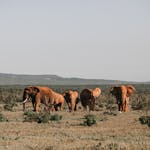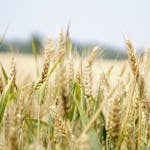I recently visited Basi Khurd, a beautiful village nestled in the Mandi Bahauddin district of Pakistan. Surrounded by lush green fields and intricate canal systems, it’s a picturesque place that captures the essence of rural Pakistan.
What makes Basi Khurd even more special is its agricultural richness. The fertile lands, supported by an efficient network of canals, are perfect for growing a variety of crops.
From wheat to sugarcane, this village thrives on farming, and it’s clear how much the local community depends on the land for their livelihood.
As I walked through the village, I couldn’t help but think about how modern technology, especially drones, could transform agricultural practices here.
Drones are becoming essential tools in farming, helping with tasks like crop monitoring, irrigation management, and pesticide application.
These advancements can significantly improve productivity and reduce the labor burden on farmers, making drones a valuable asset in rural communities like Basi Khurd.
Farming in Basi Khurd: A Blend of Tradition and Technology
The agricultural practices in Basi Khurd are integral to the village’s economy, with many families depending on farming for their livelihood.
The farmers grow a range of crops, including wheat, sugarcane, and vegetables, and it’s fascinating to see how the landscape supports this diversity.
However, I realized that introducing new technologies, like drones, could offer even greater opportunities for these farmers.
Imagine using a drone to monitor crop health, detect moisture levels, or even apply pesticides. These innovations could save time, reduce labor, and improve crop yields.
The prospect of integrating drones into daily farming routines is not just practical; it’s exciting.
Why Drones are Gaining Popularity in Rural Areas
Drones are more than just tools for agriculture—they’re becoming a source of fascination in rural areas. In Basi Khurd, the idea of flying drones could offer a sense of enjoyment while also serving practical purposes.
With the ability to capture breathtaking aerial views of the village’s fields and canals, drones present a unique combination of leisure and utility. It’s easy to see how flying a drone here could become both a fun hobby and a way to improve farming techniques.
Drone Regulations in Pakistan: What You Need to Know
Before I could imagine flying a drone in Basi Khurd, I had to consider the legal requirements. In Pakistan, the Pakistan Civil Aviation Authority (PCAA) governs drone usage, and there are specific regulations that drone enthusiasts must follow.
One of the key requirements is obtaining a drone license, which ensures that operators are familiar with aviation safety standards.
The licensing process involves submitting personal identification, details about the drone, and passing a test on aviation laws. Staying updated on the latest regulations is crucial because non-compliance can lead to legal trouble.
Additionally, when flying in rural areas like Basi Khurd, it’s important to be respectful of the local community. Seeking permission from landowners and informing residents before flying a drone is not only courteous but also helps avoid misunderstandings.
Drones can capture stunning images, but maintaining good relations with the community should always be a priority.
Best Practices for Flying Drones in Basi Khurd’s Rural Landscape
Flying a drone in a rural setting like Basi Khurd offers a thrilling experience, but it also requires preparation. To make the most of this technology, choosing the right drone is crucial.
Drones equipped with GPS, long battery life, and high-resolution cameras are ideal for capturing the expansive fields and canals that define the area. Weather conditions also play a significant role, so it’s essential to fly on calm, clear days to ensure a stable flight.
When I first envisioned flying a drone here, I thought about capturing the stunning beauty of the village’s landscape from various angles and altitudes.
Adjusting the camera settings to accommodate different lighting conditions can result in some incredible footage, especially during the golden hours of sunrise and sunset.
But it’s not just about capturing the perfect shot—safety and etiquette are key. Keeping a safe distance from livestock and avoiding private areas without permission ensures that drone flying doesn’t disrupt the peace of the community.
By following these best practices, drone enthusiasts like myself can enjoy exploring rural areas while respecting local customs.
My Personal Experience with Drones in Agriculture
Flying a drone in Basi Khurd gave me an entirely new perspective on agriculture. Soaring above the fields, I could see the intricate patterns of crops and the farmers’ hard work laid out beneath me.
The ability to monitor crops from above opened my eyes to how drones can revolutionize farming practices.
With high-resolution cameras and advanced sensors, drones can provide real-time data on crop health, moisture levels, and pest infestations. This allows farmers to make informed decisions, improving yield and reducing waste.
One of the most exciting aspects of drone technology is its potential for irrigation management. Using thermal imaging, drones can detect areas that are over or under-irrigated, helping farmers optimize water usage.
This is especially important in a country like Pakistan, where water resources are precious. Watching the fields of Basi Khurd from above, I realized how drones could transform the way farmers interact with their land, making farming more efficient and sustainable.
Embracing the Future of Agriculture in Basi Khurd
The integration of drones into farming practices in Basi Khurd is an inspiring opportunity for the local community.
By embracing this technology, farmers can enhance their traditional methods, promote sustainability, and engage more dynamically with their land.
As I reflect on my experience, I see the potential for drones to not only improve agricultural productivity but also foster a deeper connection between farmers and the evolving world of technology.
In a village as scenic and agriculturally rich as Basi Khurd, the future of farming looks bright—and drones could very well be the key to unlocking its full potential.



